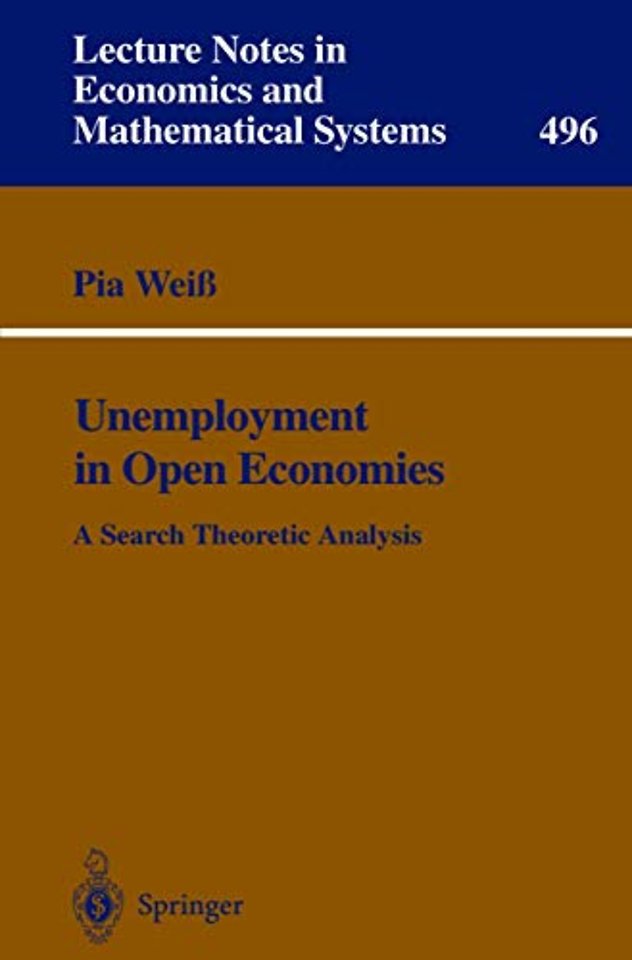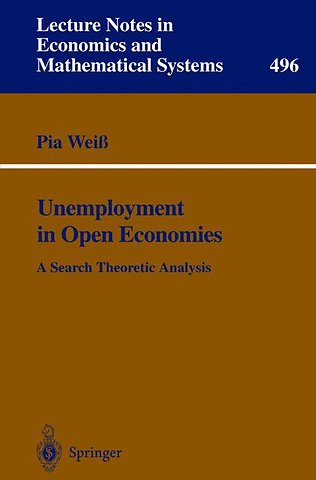Unemployment in Open Economies
A Search Theoretic Analysis
Paperback Engels 2000 9783540411611Samenvatting
Globalisation is normally associated with expanded international trade in goods and services. In view ofhigh and persistent unemploymentin European countries during the last two decades opponents of globali sation argue that increased import competition, particularly from low wage countries,influences the domestic labour markets adversely. How ever, the advocates of open markets stress that this is a misconception about the impact offoreign trade;their view is that the employment ef fects depend to a large extent on the degree offlexibility ofthe domestic labour markets. This debate has induced Pia WeiB to examine the unemployment prob lem in an open economy within a rigorously theoretical framework. The focus is on the mismatch between labour demand andlabour supply. For that purpose, new modelsin labour economics concerningthe searchand matching theory are used. It is shown that an increased competition on the world goods markets leads to an increase inthe industrialised coun try's unemployment rate only ifthe wages are not fully flexible. At the same time, it is demonstrated that changes on the world markets may help to explain the observed development ofthe unemployment vacancy ratio. The study provides valuable insights which might enrich the subjects taught at undergraduate courses. Scholars interested in the interaction of foreign trade and employment may find in the study suggestions for future research. The research forthis studyhasbeenundertakenatthe Institutfur Wirt- VIII Preface schaftspolitik (Institute of Political Economy), University of Cologne.
Specificaties
Lezersrecensies
Inhoudsopgave
Anderen die dit kochten, kochten ook
Rubrieken
- advisering
- algemeen management
- coaching en trainen
- communicatie en media
- economie
- financieel management
- inkoop en logistiek
- internet en social media
- it-management / ict
- juridisch
- leiderschap
- marketing
- mens en maatschappij
- non-profit
- ondernemen
- organisatiekunde
- personal finance
- personeelsmanagement
- persoonlijke effectiviteit
- projectmanagement
- psychologie
- reclame en verkoop
- strategisch management
- verandermanagement
- werk en loopbaan







